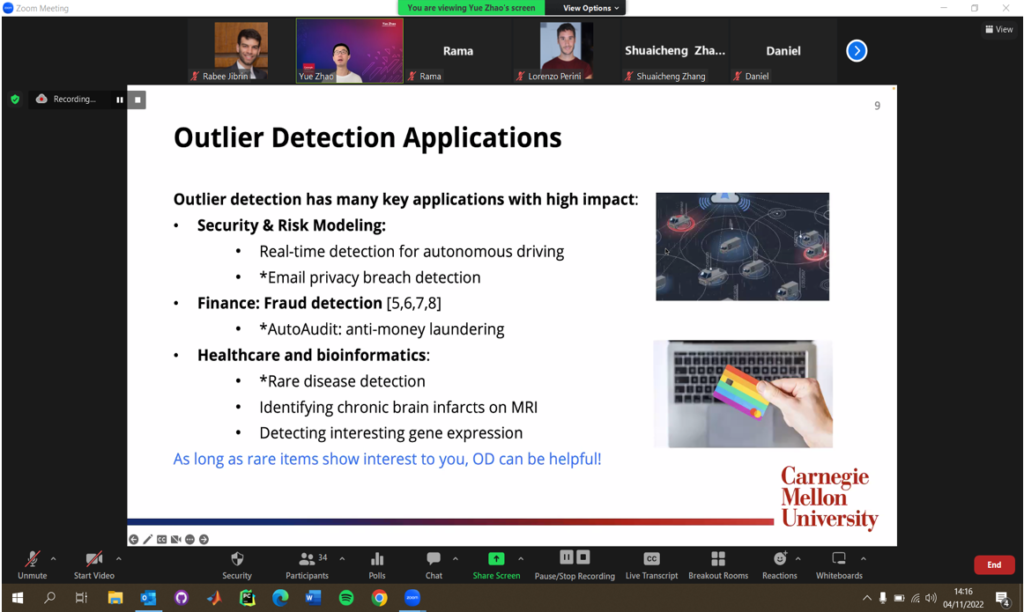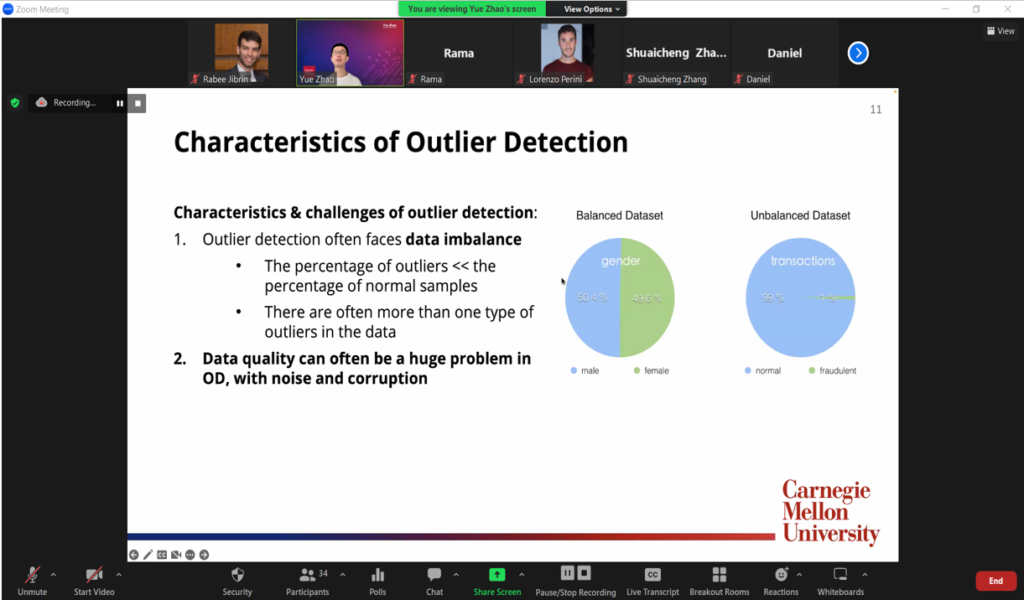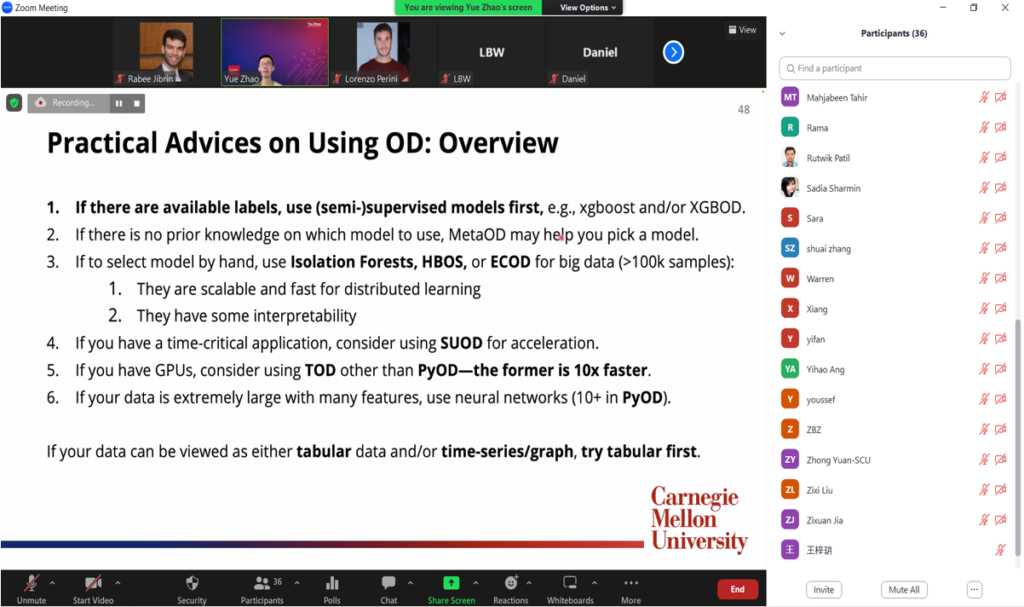Event Review: UoB IEEE Student Branch Event – Webinar: Anomaly Detection: Algorithms, Systems and Applications

About the speaker Yue Zhao from his website:
I am a final year Ph.D. student at Carnegie Mellon University (CMU). Before joining CMU, I earned my Master degree from University of Toronto (2016) and Bachelor degree from University of Cincinnati (2015), and worked as a senior consultant at PwC Canada (2016-19). I am an expert on anomaly detection (a.k.a outlier detection) algorithms, systems, and its applications in security, healthcare, and Finance, with more than 7-year professional experience and 30+ papers (in JMLR, TKDE, VLDB, NeurIPS, etc.). I am honored to be one of the two winners of 2022 Norton Labs Graduate Fellowship.
The webinar was streamed on the 4th of November from 2-3pm on Zoom. Excluding organisers and the speaker, we had 33 attendees with an outstanding international outreach. Excluding students from the University of Birmingham, we had attendees from TU Dortmund, Georgetown University, Sichaun University, Purdue, KU Leuven, Imperial College, The Chinese Academy of Mathematics and Systems Science, The National University of Singapore and UCLA
Backgroud to talk:
Anomaly detection (AD) is a method to detect outliers in a dataset. Statistical methods to AD (e.g., Gausian distribution) are very interpretable but not very flexible. Machine learning methods (e.g., k-nearest neighbour) are more flexible but less interpretable. The speaker’s contribution to the field are Python libraries that simulate and benchmark tens of AD algorithms. Applications that the speaker has testsed include finance, health and cyber-security.

One of AD’s challenges is not having enough examples of anomalies, also known as an unbalanced dataset. This is particularly meaningful because anomaly detection involves detecting rare events.

The speaker concluded the webinar with practical advice about using AD algorithms

